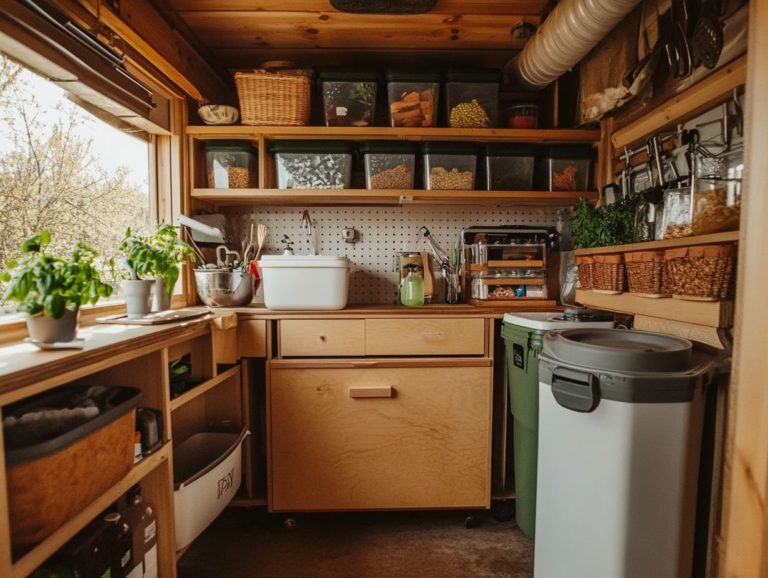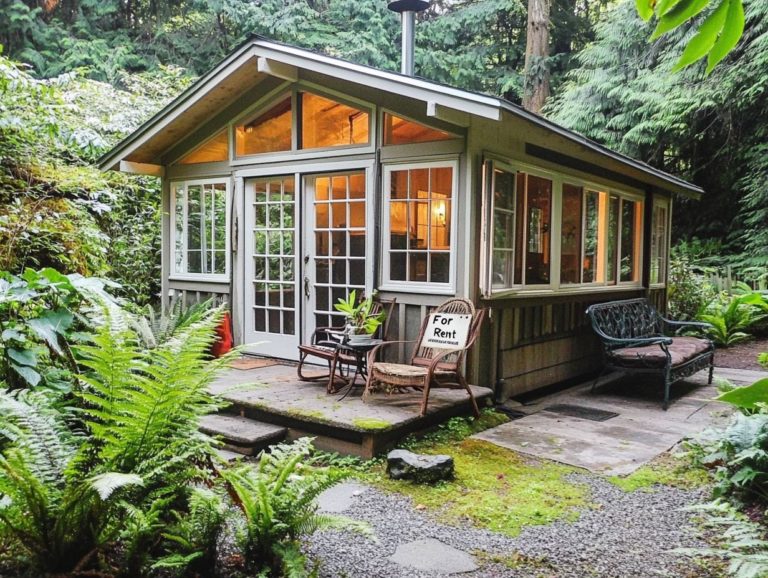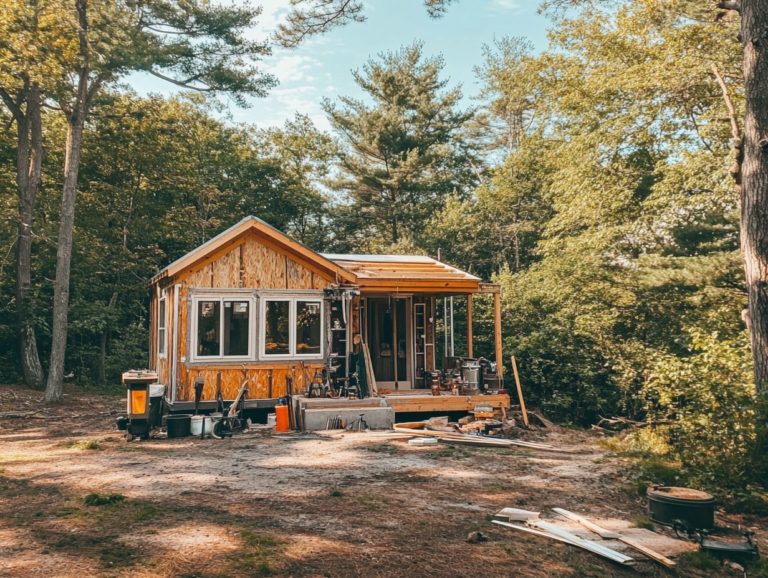What Is Tiny House Certification?
Are you ready to embrace the tiny house lifestyle? You re not alone! Tiny house living has surged in popularity, yet the journey through the realm of tiny house certification can feel quite daunting. This article serves as your guide, breaking down what tiny house certification entails, its importance, and the different types available, including RVIA and NOAH certifications.
You ll discover the certification process, complete with key requirements and essential steps. You’ll also learn about the benefits of obtaining certification like legal compliance and better insurance options.
It also delves into the challenges and ongoing debates regarding the necessity of certification, offering you a well-rounded understanding of this vital aspect of tiny house ownership.
Contents
Key Takeaways:
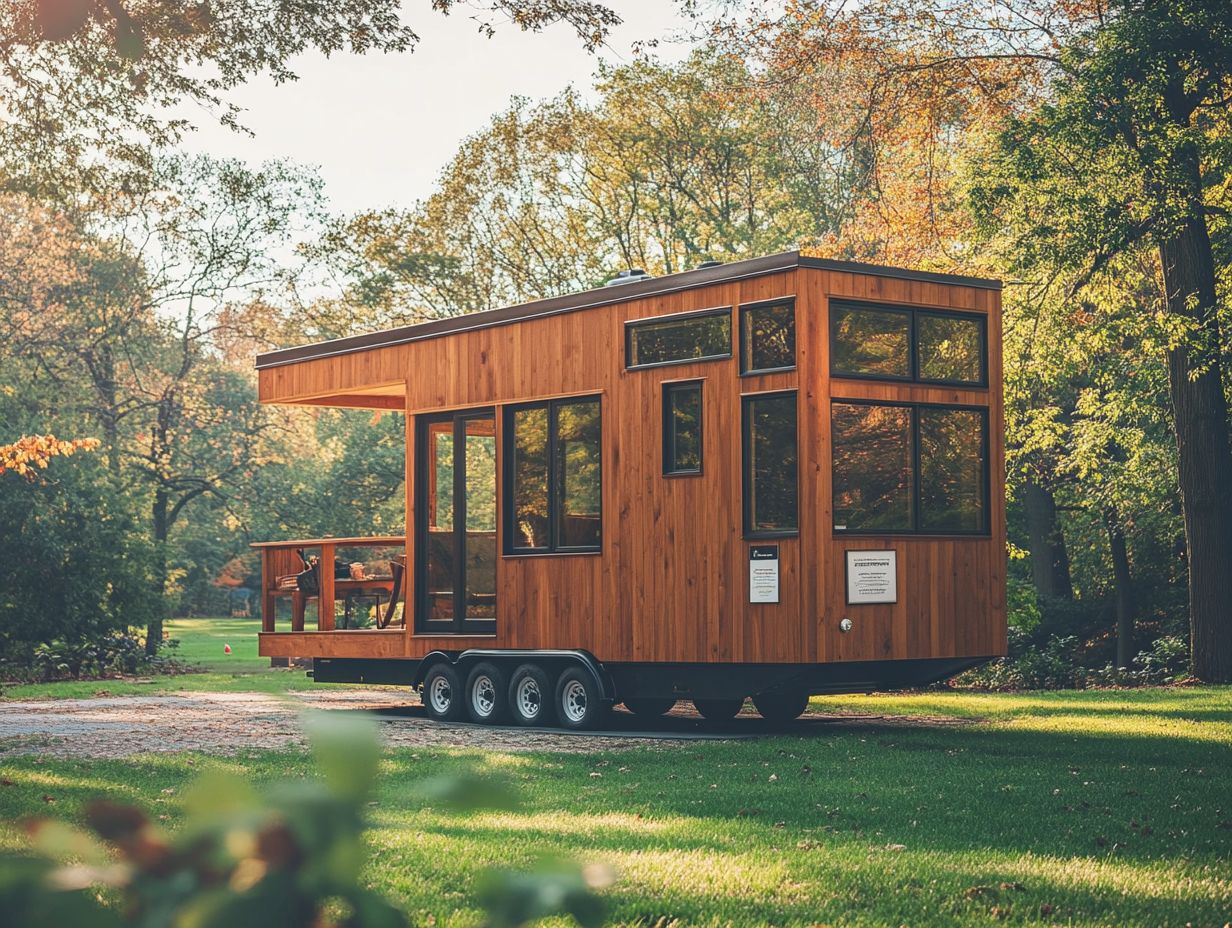
- Tiny House Certification is a process that verifies a tiny house meets safety and legal requirements.
- Choosing the right type of certification, such as RVIA or NOAH, is crucial for ensuring your tiny house is compliant.
- Benefits of certification include legal compliance, safety, and insurance and financing options, but there are also challenges and controversies surrounding the process.
Understanding Tiny House Certification
Grasping the nuances of Tiny House Certification is essential for anyone drawn to the tiny house movement. This certification represents not just legal recognition but also the quality benchmarks established by respected bodies like NOAH (National Organization for Alternative Housing) and the Tiny Home Industry Association.
These certifications ensure compliance with building codes and regulations, ensuring safety and structural integrity for your tiny home project. They also promote sustainable housing and innovative living solutions, creating a framework for affordable housing options that resonate with contemporary lifestyles.
What is Tiny House Certification?
Tiny House Certification is a process that checks your tiny home to ensure it meets specific legal and safety requirements. This allows you to live in harmony with local building rules.
This certification typically includes various assessments, such as structural, energy efficiency, and safety evaluations, each focusing on different aspects of your build. Inspection agencies help ensure your tiny house complies with industry standards.
Adhering to building product certification standards is crucial, as it guarantees that all materials used in your home are safe and appropriate for residential living.
By opting for certification, you not only enhance your property s value but also gain peace of mind from knowing your home is secure and meets all necessary regulations.
Why is it Important?
Tiny house certification is important because it provides you with safety assurance while ensuring compliance with local regulations. This not only protects you as an inhabitant but also safeguards the surrounding community.
Without proper certification, you may face serious legal challenges. Unregulated structures could lead to violations of zoning rules and building codes. This lack of compliance jeopardizes your safety and can create hazardous living conditions, increasing the risks of accidents or health issues.
Uncertified tiny homes can negatively impact community development, sparking opposition from neighbors and local authorities. Communities thrive on organized planning and safety. Without certification, the overall acceptance of tiny housing is put at risk, ultimately hindering the movement toward sustainable living.
Types of Tiny House Certifications
You ll find a variety of certifications available for tiny houses, such as NOAH certification, RVIA certification, and endorsements from the Tiny Home Industry Association.
Each of these certifications has its own set of benefits and compliance standards. This ensures that you can choose the one that best aligns with your goals and aspirations for your tiny home.
Conclusion
In summary, tiny house certification is a crucial step in ensuring safety, compliance, and community acceptance. Don’t risk your safety explore certification options today and take the next step toward ensuring your tiny house is secure and recognized.
For more information, consider reaching out to relevant agencies that can help you navigate the certification process.
RVIA Certification
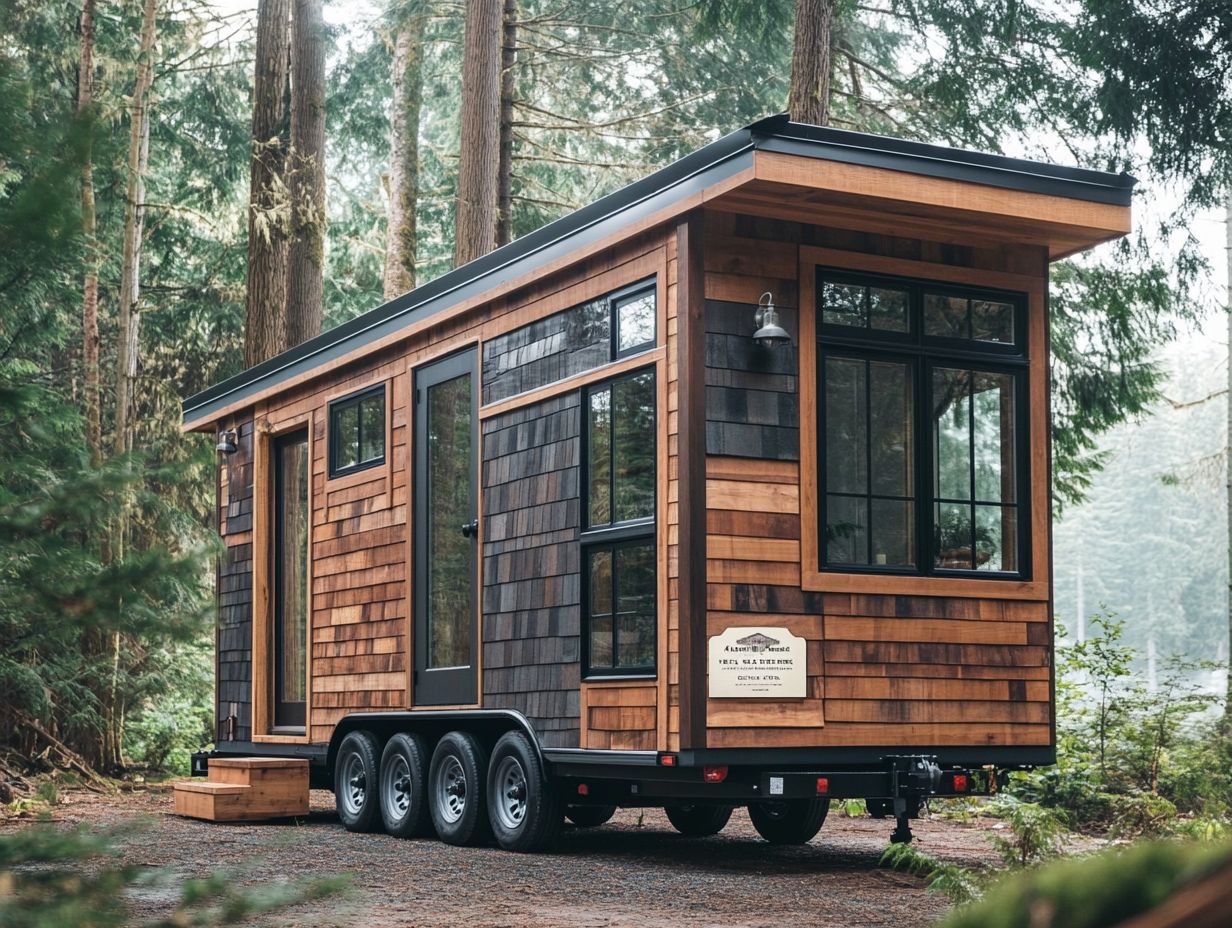
RVIA Certification is specifically designed for tiny homes built on trailers. This certification ensures these homes meet the safety standards required for recreational vehicles.
This certification covers critical areas, including the strength and stability of the structure, electrical systems, plumbing, and fire safety. It confirms that tiny house trailers are not just livable but genuinely safe for their occupants.
Following the guidelines set by the Recreational Vehicle Industry Association helps these homes comply with local building codes and national safety requirements. This offers peace of mind for anyone considering a tiny lifestyle.
Understanding how this certification affects insurance rates, resale value, and the overall durability of your mobile living space is essential for enthusiasts and prospective owners alike.
NOAH Certification
NOAH Certification, offered by the National Organization for Alternative Housing, highlights the importance of quality craftsmanship and following current building codes for tiny homes.
This certification serves as a vital mark of reliability for both builders and buyers. It ensures that tiny houses not only look great but also comply with safety regulations. The stringent inspection process includes thorough evaluations of construction materials and design, protecting against potential issues.
As the tiny house movement gains momentum, NOAH Certification plays a crucial role in building consumer confidence. It ultimately helps promote acceptance of alternative living solutions. By emphasizing transparency and quality, this certification fosters a community where innovative housing can grow sustainably.
Other Certifications to Consider
In addition to RVIA and NOAH certifications, several other certification bodies offer valuable assessments for tiny houses. They ensure compliance with building product certification and safety requirements.
For instance, the International Code Council (ICC) provides standards focusing on both safety and sustainability. This is ideal for those looking to incorporate eco-friendly practices into their tiny home projects. The American Institute of Architects (AIA) also promotes frameworks supporting tiny house construction that align with contemporary architectural trends.
These alternative certifications not only increase the credibility of tiny home manufacturers but also guide you through the intricate landscape of tiny house regulations. This ensures compliance and gives you peace of mind as you embark on your tiny living journey.
The Certification Process
The certification process for tiny houses involves a meticulous series of steps designed to ensure compliance with regulations. It includes a thorough inspection process that rigorously evaluates both the safety and quality of the structure. This ensures every detail meets the highest standards.
Requirements and Steps
Requirements for tiny house certification typically require adherence to specific tiny house specifications and local building codes, along with assessments from qualified inspection agencies.
You ll need to provide detailed architectural plans that outline the design, materials, and intended use of your structure. Inspectors will scrutinize your plans for compliance with safety standards regarding electrical wiring, plumbing, and overall structural integrity. Essential documentation includes proof of insurance and any relevant permits obtained from local authorities.
Once you’ve submitted everything, a pre-inspection meeting may occur, followed by an on-site evaluation. During the evaluation, inspectors will assess your tiny home against the established building codes. If you pass inspection, congratulations! You ll receive a certification that allows you to legally inhabit your new dwelling.
Benefits of Tiny House Certification
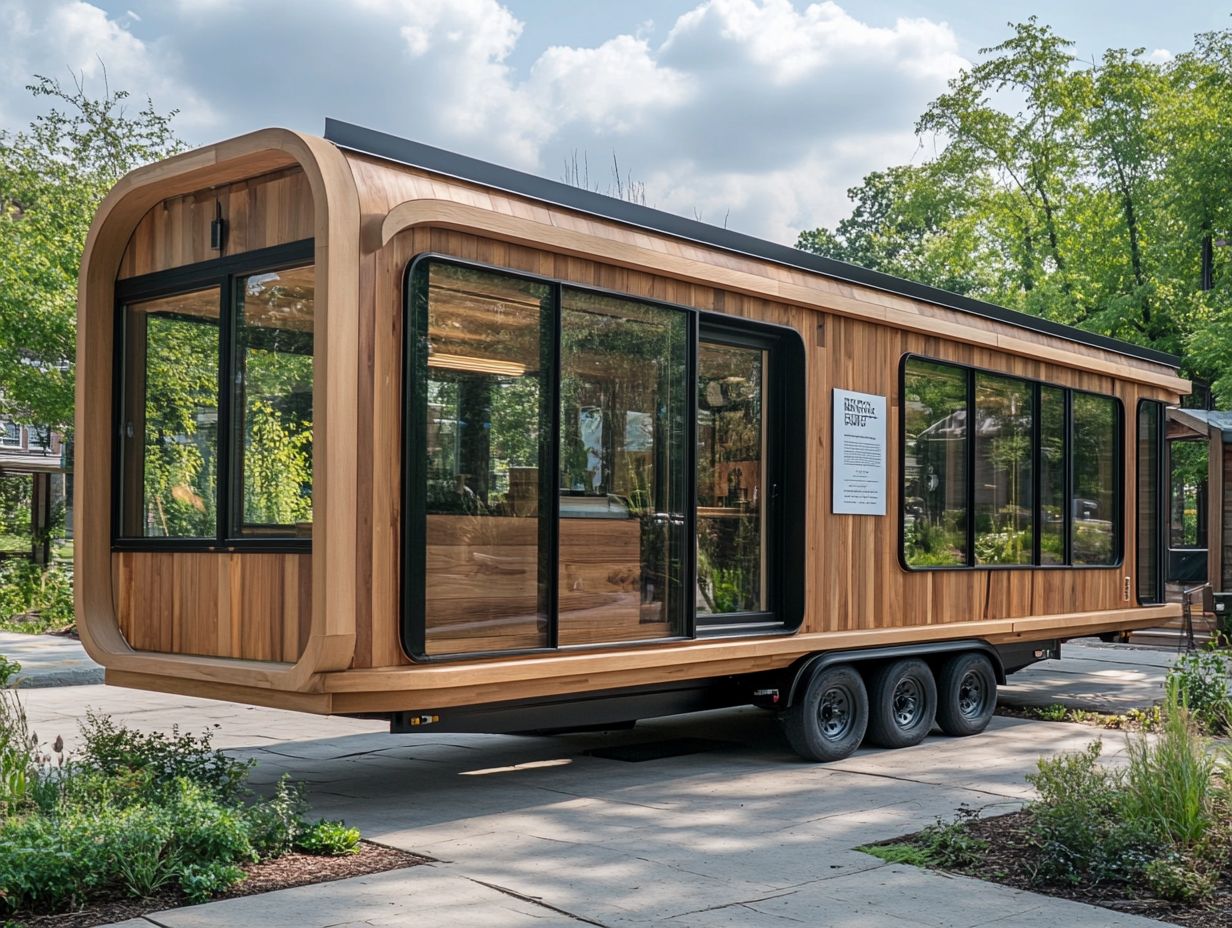
Tiny house certification offers a wealth of advantages. It ensures compliance with local regulations, provides safety assurances for residents, and opens the door to a range of insurance options specifically designed for tiny homes.
Don t miss out on the peace of mind that comes with certification! Get your tiny house certified today to unlock your dream lifestyle!
Legal Compliance and Safety
Legal compliance and safety stand as important benefits of tiny house certification. This ensures your home meets all necessary building codes and safety requirements, granting you legal recognition!
This legal recognition is crucial for establishing community acceptance. It allows you to reside harmoniously within neighborhoods that acknowledge your tiny home as a legitimate housing option.
By adhering to local zoning laws and construction standards, you can often secure insurance policies tailored specifically to your unique dwelling something that can be quite challenging without proper documentation.
The respectability that comes with legal compliance fosters a sense of security for you as an owner and paves the way for broader acceptance within society. This encourages local governments to revisit regulations and potentially create more inclusive policies around alternative housing solutions.
Insurance and Financing Options
Certification can unlock a world of insurance options and financial solutions for tiny house owners, making your dream of living in an affordable and sustainable home much more attainable!
As the tiny home movement gains traction, obtaining the right certification becomes essential for securing insurance policies tailored to this distinctive lifestyle. Insurers often view certified tiny houses as less risky, which can lead to lower premiums and enhanced coverage.
Certification also helps you secure financing, as lenders are typically more inclined to extend loans for properties that meet established standards. This enables those looking to downsize and strengthens the entire tiny house movement as a valid housing alternative that resonates with contemporary values of sustainability and minimalism.
Challenges and Controversies
Despite the numerous benefits, the tiny house movement encounters challenges and controversies. One key issue revolves around the hurdles associated with certification and the ongoing debate about whether such certifications are truly necessary.
Obstacles to Certification
Obstacles to certification often stem from rigorous tiny house regulations and the diverse local building codes that can complicate your compliance and inspection process as a builder.
For example, in coastal areas like California, you may encounter challenges due to regulations focused on preserving the natural landscape and safeguarding against environmental hazards such as wildfires and floods.
Conversely, in states like Texas, while the tiny house movement enjoys a more accommodating regulatory climate, the absence of standardized codes can result in inconsistent requirements across various municipalities.
These challenges can delay your construction timeline and increase costs, creating significant pressure for those aspiring to embrace the tiny living lifestyle. Successfully navigating these complexities demands that you remain informed and adaptable, ensuring you meet local requirements while bringing your unique vision to life.
Debate over Necessity of Certification
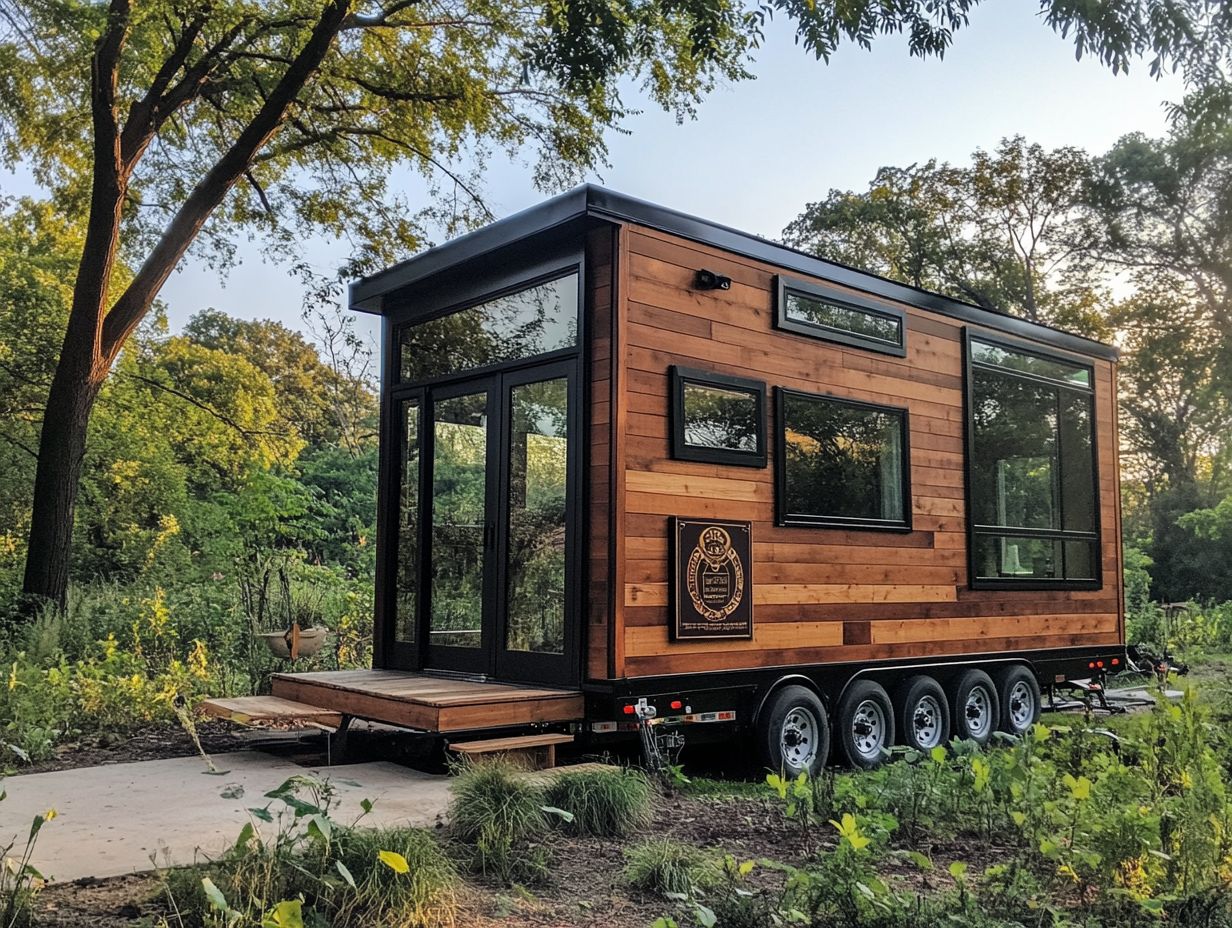
The debate surrounding the necessity of tiny house certification is ongoing. Supporters assert that it’s vital for legal recognition and safety, while critics view it as an unnecessary obstacle for the tiny house movement.
Proponents, including tiny house builders and owners, highlight that proper standards can enhance safety and open up insurance options. They envision a future where tiny houses gain formal recognition as legitimate housing solutions, effectively addressing affordability challenges.
Conversely, critics express concerns that these additional regulations might stifle creativity and restrict access for those pursuing a more minimalist lifestyle. They fear that certification could inflate costs and deter potential builders, which runs counter to the fundamental values of simplicity and independence that the tiny house movement embodies.
Frequently Asked Questions
What is tiny house certification?
Is tiny house certification necessary?
How can I find insurance for a tiny house?
What are the benefits of tiny house certification?
What Is Tiny House Certification?
Tiny house certification is a way to make sure your tiny home meets specific standards. This includes checking the structure, materials, and safety.
Why Is Tiny House Certification Important?
Tiny house certification matters! It guarantees safety and quality, ensuring your tiny home meets crucial building codes.
Having this certification can also boost your resale value and improve your insurance options.
How Do I Get My Tiny House Certified?
The steps to get certification can vary. Start by submitting your plans, then a certified professional will inspect your tiny home.
Is Tiny House Certification Required?
Usually, certification isn t required by law. However, it s highly recommended to ensure your tiny house is safe and legally livable.
Who Offers Tiny House Certification?
Several organizations provide tiny house certification. Notable ones include the American Tiny House Association and the Tiny Home Industry Association.
Make sure to choose a reputable organization by doing your research!
Are There Different Types of Tiny House Certification?
Yes, there are different types, such as RVIA for recreational vehicles and ANSI for park model homes.
Each type has unique standards and regulations to follow.



